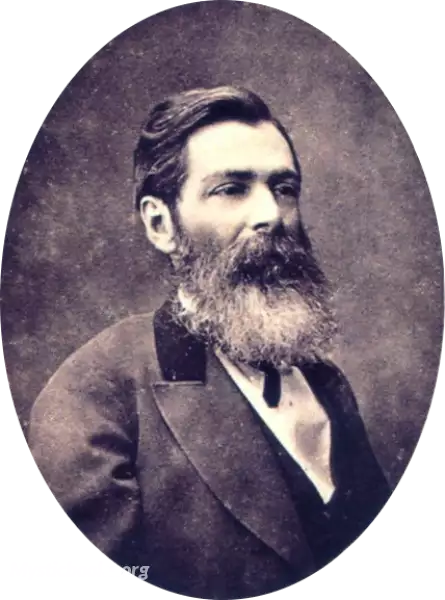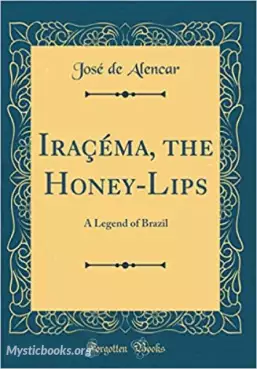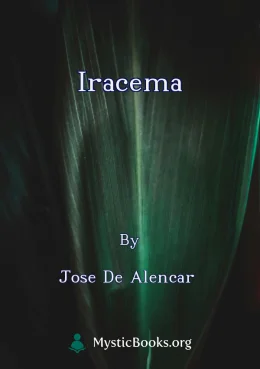
Timeline
Title
Country/Nationality
Jose de Alencar
José Martiniano de Alencar was a Brazilian lawyer, politician, orator, novelist and dramatist. He is considered to be one of the most famous and influential Brazilian Romantic novelists of the 19th century, and a major exponent of the literary tradition known as "Indianism". Sometimes he signed his works with the pen name Erasmo.
He was patron of the 23rd chair of the Brazilian Academy of Letters.
José Martiniano de Alencar was born in Messejana, Fortaleza, Ceará, on May 1, 1829, to politician José Martiniano Pereira de Alencar and his cousin Ana Josefina de Alencar. His family was a rich and influential clan in Northeastern Brazil, his grandmother being famous landowner Barbara Pereira de Alencar, heroine of the Pernambucan Revolution. Moving to São Paulo in 1844, he graduated in Law at the Faculdade de Direito da Universidade de São Paulo in 1850 and started his career in law in Rio de Janeiro. Invited by his friend Francisco Otaviano, he became a collaborator for the journal Correio Mercantil. He also wrote many chronicles for the Diário do Rio de Janeiro and the Jornal do Commercio. Alencar would compile all the chronicles he wrote for these newspapers in 1874, under the name Ao Correr da Pena.
It was in the Diário do Rio de Janeiro, during the year of 1856, that Alencar gained notoriety, writing the Cartas sobre A Confederação dos Tamoios, under the pseudonym Ig. In them, he bitterly criticized the homonymous poem by Gonçalves de Magalhães. Even the Brazilian Emperor Pedro II, who esteemed Magalhães very much, participated in this polemic, albeit under a pseudonym. Also in 1856, he wrote and published under feuilleton form his first romance, Cinco Minutos, that received critical acclaim. In the following year, his breakthrough novel, O Guarani, was released; it would be adapted into a famous opera by Brazilian composer Antônio Carlos Gomes 13 years later. O Guarani would be first novel of what is informally called Alencar's "Indianist Trilogy" – a series of three novels by Alencar that focused on the foundations of the Brazilian nation, and on its indigenous peoples and culture. The other two novels, Iracema and Ubirajara, would be published on 1865 and 1874, respectively. Although called a trilogy, the three books are unrelated in their plots.
Alencar was affiliated with the Conservative Party of Brazil, being elected as a general deputy for Ceará. He was the Brazilian Minister of Justice from 1868 to 1870, having famously opposed the abolition of slavery. He also planned to be a senator, but Pedro II never appointed him, under the pretext of Alencar being too young; with his feelings hurt, he would abandon politics later.
He was very close friends with the also famous writer Machado de Assis, who wrote an article in 1866 praising his novel Iracema, that was published the year before, comparing his Indianist works to Gonçalves Dias, saying that "Alencar was in prose what Dias was in poetry". When Assis founded the Brazilian Academy of Letters in 1897, he chose Alencar as the patron of his chair.
In 1864 he married Georgina Augusta Cochrane, daughter of an eccentric British aristocrat. They would have six children – Augusto (who would be the Brazilian Minister of External Relations in 1919, and also the Brazilian ambassador on the United States from 1920 to 1924), Clarisse, Ceci, Elisa, Mário (who would be a journalist and writer, and a member of the Brazilian Academy of Letters) and Adélia. (It is implied that Mário de Alencar was actually an illegitimate son of Machado de Assis, a fact that inspired Assis to write his famous novel Dom Casmurro.)
Alencar died in Rio de Janeiro in 1877, a victim of tuberculosis. A theatre in Fortaleza, the Theatro José de Alencar, was named after him. His works were marked by the influence of his Roman Catholic faith.
Books by Jose de Alencar

Iracema, the Honey-Lips: A Legend of Brazil
The story revolves around the relationship between the Tabajara indigenous woman Iracema and the Portuguese colonist Martim, who was allied with the Tabajara nation's enemies, the Pitiguaras.

Senhora
"Senhora" is a classic of Brazilian literature that explores the complex social issues of 19th century Brazil. Through the story of Aurélia and Fernando, the novel critiques the decadence of the elite court society, the obsession with wealth and stat...

Cinco Minutos
Cinco Minutos é uma história romântica que narra a busca de um homem por uma mulher que ele conhece por acaso e de quem se apaixona. O romance gira em torno dos encontros e desencontros do protagonista com a amada, em um jogo de mistério e emoção. O...

Viuvinha
A Viuvinha é um romance urbano que se passa no Rio de Janeiro durante o Segundo Reinado. A história gira em torno de Jorge, um jovem herdeiro que está prestes a casar-se com Carolina, uma mulher bela e cativante. No entanto, a tragédia toma conta da...

Iracema
Iracema is a classic Brazilian novel that tells the story of a love affair between a Native American warrior woman, Iracema, and a Portuguese colonizer, Martim. The narrative explores themes of cultural conflict, the beauty of nature, the power of l...

Como e porque sou romancista
In this autobiographical work, José de Alencar reflects on his choice of the novel as his primary literary form. He discusses his early education and influences, his experiences as a journalist, and his thoughts on the role of the novelist in society...

Lucíola
Lucíola, a poignant novel by José de Alencar, tells the tale of Paulo, a young man from the provinces, who arrives in the bustling city of Rio de Janeiro. He finds himself captivated by Lúcia, a beautiful woman who lives a life of wealth and luxury b...

Guarany: Romance Brasileiro
O Guarani is a historical novel that tells the story of Peri, a young indigenous man, and Cecília, a Portuguese woman. The novel explores themes of miscegenation and the clash between Portuguese and indigenous cultures in Brazil. Alencar's vivid desc...